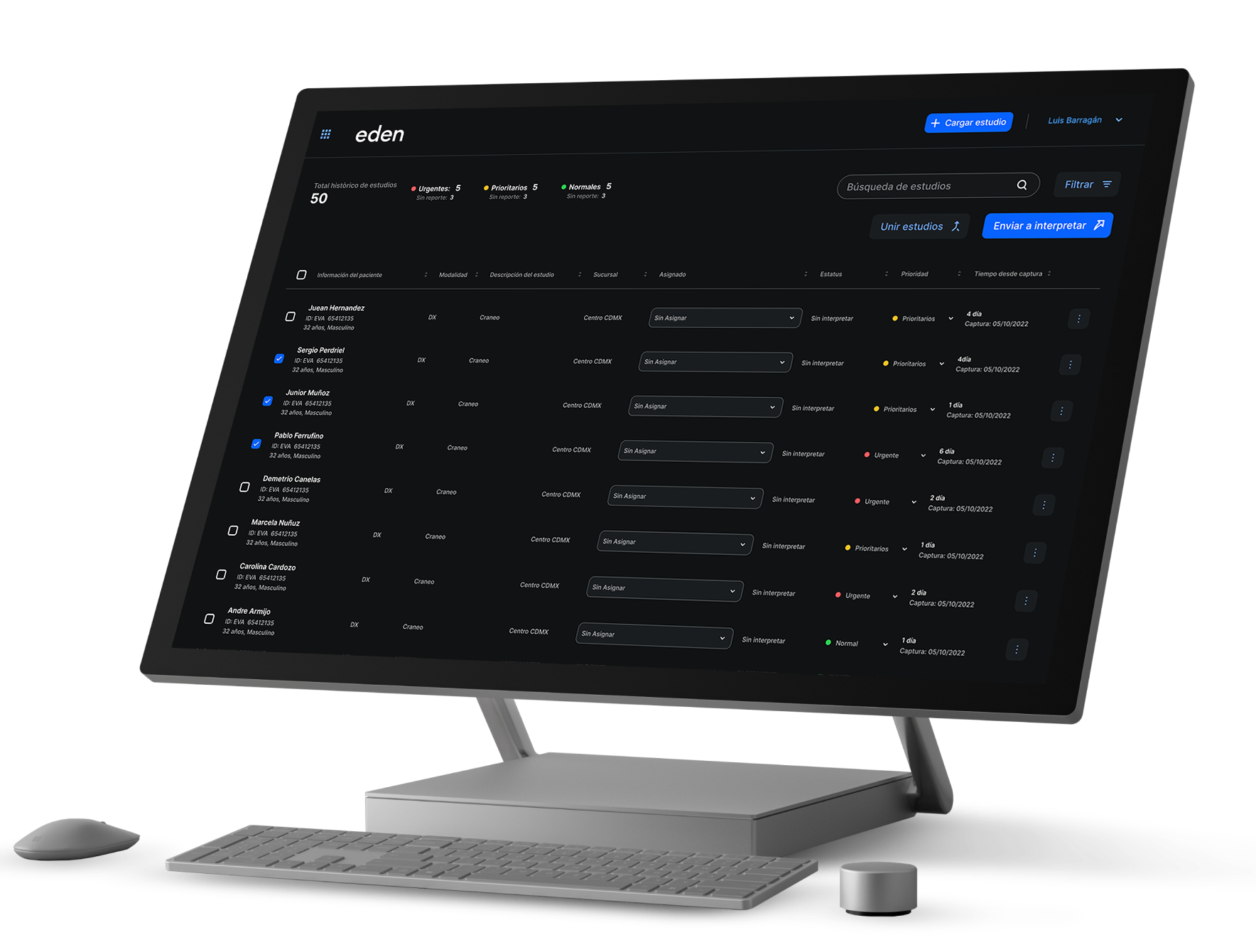Cloud storage is a modern way of storing data that offers many advantages over traditional storage. This technology allows users to access their data from any location and device, with an Internet connection. This is achieved by storing the data on a network of servers, rather than a local computer. Cloud storage also allows users to easily share data with other users and collaborate on online projects.
In addition, cloud storage offers the ability to scale storage as needed. This means that users can increase or decrease storage space as needed, without having to change their computer equipment. This is especially useful for radiological innovation laboratories, which may need to increase storage space for carrying out tests and experiments.
Cloud storage services are offered through a variety of providers, such as Google Drive, Dropbox, Microsoft Azure, and Amazon Web Services. These providers offer different storage plans, prices and features, so that users can choose the one that best suits their needs. In addition, most providers offer a free trial so that users can test the service before buying a plan.
Advantages of cloud storage in a radiological innovation laboratory
Radiological innovation laboratories, which are normally dedicated to the research and development of new technologies, can greatly benefit from cloud storage. This is because cloud storage offers a variety of advantages over traditional storage.
First, cloud storage is much more scalable than traditional storage. This means that users can increase or decrease storage space as needed, without having to buy new computer equipment. This is especially useful for radiological innovation laboratories, which need a large amount of storage space to carry out tests and experiments.
In addition, cloud storage offers a platform for sharing and collaborating with other users. This means that users can easily share files and data with other users, without having to send attachments via email. This is especially useful for radiological innovation laboratories, which often need to share data with other researchers and collaborators.
In addition, cloud storage offers a convenient way to access data from anywhere. This means that users can access their data from anywhere with an Internet connection. This is especially useful for radiological innovation laboratories, which need to access their data from anywhere and at any time.
Finally, cloud storage offers a secure way to store data. This means that data stored in the cloud is protected against loss, theft and destruction. This is especially useful for radiological innovation laboratories, which need to store sensitive and secure data.
Advantages of cloud storage over traditional storage
In addition to the cloud storage advantages mentioned above, cloud storage also offers some advantages over traditional storage. First, cloud storage doesn't require a large initial investment to purchase computing and storage equipment. This means that radiological innovation laboratories can start using cloud storage without having to make a large investment.
In addition, cloud storage is more secure than traditional storage. This is because data stored in the cloud is protected by a variety of security measures, such as encryption, two-factor authentication, and multifactor authentication. This means that data stored in the cloud is safe from loss, theft and destruction.
In addition, cloud storage offers greater ease of use than traditional storage. This is because users can access their data from anywhere with an Internet connection. This means that users don't have to be physically present to access their data, allowing them to work from anywhere.
Finally, cloud storage offers greater control of data for users. This is because users can choose the level of security and privacy they want for their data stored in the cloud. This means that users can choose the level of security and privacy they want for their data stored in the cloud.
Cloud storage security and privacy
In addition to the cloud storage advantages mentioned above, users must also consider the security and privacy of their data stored in the cloud. This is because data stored in the cloud is subject to a number of threats, such as data theft, unauthorized access and data destruction.
To protect data stored in the cloud, users must ensure that they are using a secure cloud storage provider. This means that users should look for a cloud storage provider that offers state-of-the-art security and privacy. Cloud storage providers typically offer different levels of security, from data encryption to two-factor authentication and multi-factor authentication.
In addition, users must also ensure that their data is protected by law. This means that users must ensure that their data is protected by local laws and regulations, such as the Personal Data Protection Act. This means that users must ensure that their data is protected by local laws and regulations, such as the Personal Data Protection Act.
Cloud storage use cases in a radiological innovation laboratory
Cloud storage is especially useful for radiological innovation laboratories, which can use the cloud to perform a variety of tasks. For example, radiological innovation laboratories can use cloud storage to store and share data with other users. This means that users can easily share files and data with other users, without having to send attachments via email.
In addition, radiological innovation laboratories can also use cloud storage to carry out tests and experiments. This means that users can store and access their data from anywhere with an Internet connection. This is especially useful for radiological innovation laboratories, which need to access their data from anywhere and at any time.
In addition, radiological innovation laboratories can also use cloud storage to perform data analysis. This means that users can store and analyze large amounts of data without having to make a large investment in computer equipment. This is especially useful for radiological innovation laboratories, which need to analyze large amounts of data to carry out tests and experiments.
Finally, radiological innovation laboratories can also use cloud storage to share results with other users. This means that users can easily share test results and experiments with other users, without having to send results via email. This is especially useful for radiological innovation laboratories, which need to share results with other researchers and collaborators.




















